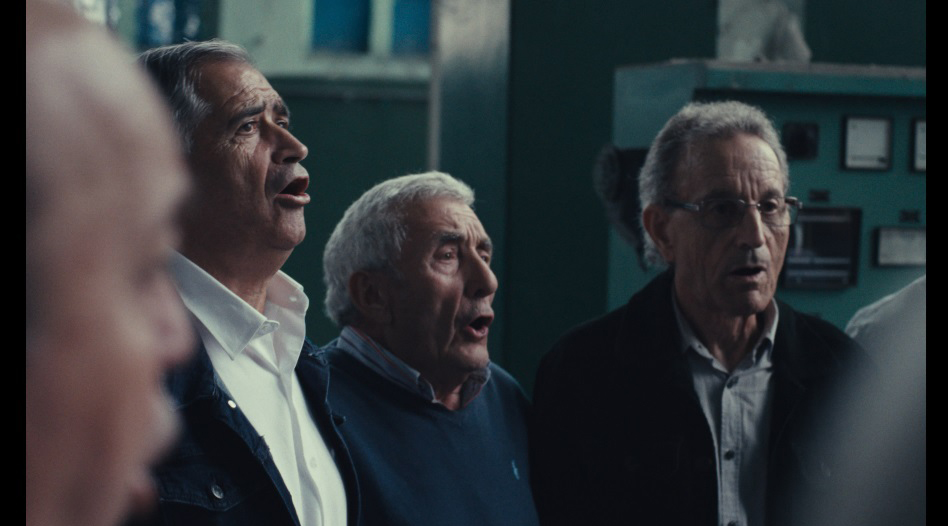Un viaggio a ritroso seguendo le impronte lasciate da altri avventurieri. Pablo Gil Rituerto e la sua troupe ripercorrono – attraverso un montaggio che alterna, in maniera armoniosa, passato e presente – l’avventura degli etnomusicologi Cantacronache che, nel 1961, sfidarono i veti della censura franchista, per esplorare la Spagna e raccogliere informazioni sui canti popolari della guerra civile. Da quelle registrazioni semi-clandestine vedrà la luce il disco Canti della nuova resistenza spagnola, un classico del folk e colonna sonora della contestazione - anche in Italia - che il ‘caudillo di Spagna’ liquiderà sprezzante definendolo “la Marsigliese degli ubriachi”. Le ferite mai rimarginate della violenza di Franco tornano a sanguinare, ma con loro rivive anche la forza immutata di quella musica, dolente e appassionata, che sembrava preludere a un mondo migliore e che, oggi, suona più necessaria che mai. (e.s.)
Dopo anni di ricerche, possediamo oggi un’ampia base documentaria e archivistica meticolosamente raccolta, riguardante il viaggio dei Cantacronache: registrazioni sonore, fotografie, scritti, filmati e documenti. Ma La Marsigliese degli ubriachi non è solo un film storico che ricostruisce il viaggio dei Cantacronache, poiché è anche aperto al presente. Lo spirito vivace e forse incosciente dei Cantacronache guida il nostro approccio: come risuonano oggi, nel presente, le lotte del passato? Cosa rimane di quelle canzoni nella Spagna di oggi? L'ascesa di partiti populisti e di estrema destra è un denominatore comune in tutta Europa e pone in questione i processi storici di revisione e riparazione, che hanno avuto luogo nei diversi paesi post-fascisti con vari gradi di successo. È in questo contesto che diventa indispensabile tornare a storie come quella raccontata ne La Marsigliese degli ubriachi, una storia che è stata messa a tacere per molto tempo. La memoria, infatti, è un’eredità che ha significato solo quando riusciamo a farla agire nel presente.
Soggetto
Alba Lombardia, Pablo Gil Rituerto
Sceneggiatura
Alba Lombardia, con Palo Gil Retuerto
Montaggio
Marcos Flórez, Pablo Gil Rituerto
Musica originale
Lina Bautista, con le registrazioni inedite di Cantacronache
Suono
Gerard Tàrrega,
Giovanni Corona, Cora Delgado, Fernando Aliaga (Presa diretta); Laia Casanovas del Pino, per Lima Limón Estudio (Sound Design)
Altri credits
Begoña Olavarrieta (Art Design); Selene Silvestri (Amministrazione); Anna Bossi (Assistente Fotografia)
Interpreti
Emilio Jona (narratore); con la partecipazione di Lionello Gennero, Emilio Jona, Artur Blasco, Asunción Carandell
Direttore di produzione
Giovanni Zaninotto
Produzione esecutiva
Montse Pujol Solà, Frédéric Féraud
Produttore
Bernat Manzano Vall, Frédéric Féraud,
Enrica Capra, Alba Lombardía, Miguel Ángel Blanca
Produzione
Boogaloo Films, Les Films de l’œil sauvage,
GraffitiDoc, Escarlata; con la partecipazione di France Télévisions e TVE
con il sostegno di Film Commission Torino Piemonte -
Piemonte Doc Film Fund - sviluppo giugno 2020, produzione dicembre 2022; Creative Europe MEDIA; MiC – Direzione Generale Cinema e Audiovisivo; Ministerio de Cultura y Deportes – ICAA; Centre National du Cinema e de l’Image Animée - CNC; ICEC - Institut Català d’Empreses Culturals; Memorial Democràtic; Institut Ramon Llull. Con la collaborazione di CREO - Associazione Centro Ricerca Etnomusica Oralità di Torino, che conserva gli archivi sonori e fotografici originali di Cantacronache.
Assistente di produzione
Cindy Juglair
